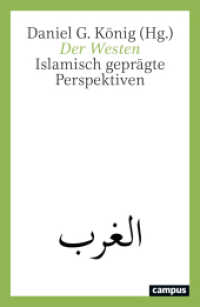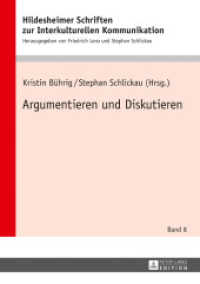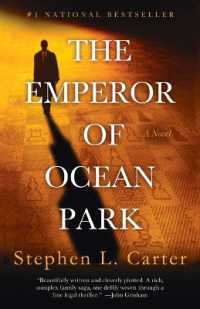Full Description
Language has played a pivotal role in societal transformation in postcolonial Africa towards the creation of globally competitive knowledge societies; however so far, this role has been under-researched and under-estimated. This volume addresses this gap in the literature, by bringing together a team of globally-recognised scholars to explore the effect of language on African postcolonial societies, and how it has contributed to achieving 'mental decolonisation'. A range of languages are explored, both imported (ex-colonial) and indigenous African, and case studies from different spheres of public discourse are investigated, from universities to legal settings. Demonstrating that multilingualism is a resource for, rather than barrier to, successful transformation, this book brings the intellectualisation and institutionalisation of African languages to the forefront of development discourse, and provides an insightful snap-shot of how current academic research, public discourse, political activism and social community engagement have contributed to societal transformation in South Africa.
Contents
Introduction: Transformative power and resourcefulness of African languages in the information and knowledge age Russell H. Kaschula and H. Ekkehard Wolff; Part I. Mental decolonisation and cultural diversity: 1. The role of African languages in decolonising South African universities Thulani Mkhize; 2. Adapt or die - Maintaining or decolonising language practices? Theodore Rodrigues; 3. Decolonising our minds, decolonising our languages: A mentalist approach to language attitudes Mantoa Motinyane; Part II. Multilingualism and intellectualisation of African languages: 4. Transformative power of language policies in higher education: A legal English approach or a linguistic African language approach? Zakeera Docrat and Russell H. Kaschula; 5. African languages in transformation: Challenges and opportunities for Zimbabwe and South Africa Emmanuel Sithole and Ziyanda Yola; 6. Linguistic diversity in higher education: inclusion or exclusion? Zakhile Somlata; 7. An impact study with reference to isiXhosa and Afrikaans multilingual glossaries for 1st year Law of Contracts students at Cape Peninsula University of Technology Linda Manashe, Boniface Kabaso, Monwabisi K. Ralarala, and Eunice Ivala; 8. The need for multicultural and multilingual sensitivity in transforming Graphic Design curriculum in a University of Technology Lindie Bhebhe, Monwabisi K. Ralarala, and Alettia Chisin; 9. An analysis of the language legislation effects in the banking sector: Towards the realisation of multilingualism in South Africa Menzi Zamokwakhe Thango and Wisdom Ntando Moyo; Part III. Digitalisation and democratisation of knowledge: 10. African language resources for knowledge societies Justus C. Roux; 11. Wikipedia as transformative multilingual knowledge resource Laurette Pretorius and Friedel Wolff; 12. Corpora as agency in the intellectualisation of African languages Langa Khumalo; 13. From postcolonial African language lexicography to globally competitive e-lexicography in Africa D. J. Prinsloo and Nompumelelo Zondi; Part IV. Interlingual and intercultural cross-fertilisation: 14. Orality in the Digital Age Janet Hayward; 15. Interpreting research in South Africa: Where to begin to transform? Herculene Kotzé and Kim Wallmach; 16. Exploring the potential of increasing epistemological access for university students of African languages through the translation of English academic texts Ntombovuyo Ngaphu; 17. Translation in foreign language teaching - cultivating critical reflection and symbolic competence Natasha Engelbrecht.








